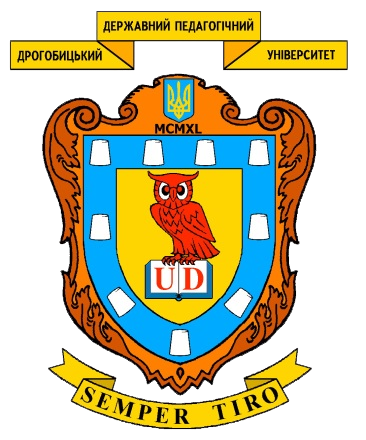PRE-PROFESSIONAL TRAINING OF A PSYCHOLOGIST IN A PRESCHOOL EDUCATION INSTITUTION: CURRENT CHALLENGES AND DIRECTIONS OF IMPROVEMENT
DOI:
https://doi.org/10.32782/2312-8437.51.2023-1.9Keywords:
pre-professional training, students, psychologist, Preschool Educational Institutions, self-analysis, essay, specialization, readiness componentsAbstract
The article updates the issue of increasing requirements for the professional training of future psychologists of Preschool Education Institutions in the context of obtaining education in the specialty 012 Preschool Education with relevant specializations in the system of higher education of Ukraine. The author emphasizes the essential importance of the formation of a new generation of the specialists who are capable of developing domestic Preschool Education and competitiveness in the labor market. The goal of the study was to find out the current trends in professional training for psychologists in Preschool Education Institutions, to identify strengths and gaps, and to outline the main directions for improving this process. The following methods were used in the research: theoretical (analysis, synthesis, systematization, generalization and specification of scientific data); self-analysis during the presentation of one’s own thoughts, feelings, beliefs and professional actions in order to understand the readiness for the professional activities of a psychologist of a Preschool Education Institution during the writing of an essay by students of the bachelor’s degree in specialty 012 Preschool Education on the topic: “I am a psychologist of a Preschool Education Institution: what I know, what I can do and what I lack”; mathematical statistics (calculation of obtained average and percentage data). The students of the 4th year of the educational and professional bachelor’s program of Preschool Education with the specializations “Preschool and Pedagogical Psychology” and “Psycholinguistics of the Development of Preschool Children” and studying the relevant educational components, took part in the study. According to the analysis of the independent essays of graduate students, it was established that the knowledge component of readiness for professional activity as a psychologist of a Preschool Education Institution is formed at a sufficient level. Education seekers are aware of the specifics of the activities of psychological services and psychological support of the subjects of the educational process. However, the participants of the experiment pointed out the insufficiency of the acquired amount of practical skills and abilities for conducting practical psychological activities in the Preschool Education Institution (practical component). As for the personal component, the graduates noted the need to improve their professional level and the development of personal qualities and the desire to work in a specialization, which testified to the appropriate level of its formation. The obtained data and proposals of the graduates made it possible to single out the main directions for improving the professional training of future psychologists of Preschool Education Institutions (according to the specified specializations) taking into account modern challenges. The prospects of further scientific work will be the determination of effective psychological mechanisms for the entry of students of various forms of education into the profession of a psychologist in a Preschool Education Institution.
References
Аніщук А.М. Професійна підготовка майбутніх фахівців дошкільної освіти. Наукові записки. Серія «Психолого-педагогічні науки» (Ніжинський державний університет імені Миколи Гоголя). 2020. № 4. С. 59–67. URL: https://doi.org/10.31654/2663-4902-2020-PP-4-59-67.
Булах І., Волошина В., Лохвицька Л. Сучасні освітні психотехнології професійної підготовки майбутніх психологів. Психологія та психосоціальні інтервенції. 2019. № 2. С. 20–29. URL: https://doi.org/10.18523/2617-2348.2019.2.20-29.
Галян О., & Борисенко З. Практична підготовка майбутніх психологів: як забезпечити набуття професійних компетенцій. Проблеми гуманітарних наук. Психологія. 2020. № 47. С. 9–21. URL: https://doi.org/10.24919/2312-8437.47.229340.
Кобильченко В.В. Практичний психолог у закладі дошкільної освіти: завдання та зміст психологічної діяльності. Особлива дитина: навчання і виховання. 2020. № 1(93). C. 7–20.
Кобильченко В.В. Професійна взаємодія психолога в умовах закладу дошкільної освіти. Особлива дитина: навчання і виховання. 2020. № 2(94). C. 7–19.
Кравець Л. Самоаналіз у сфері професійного становлення майбутніх педагогів. Освіта регіону. Політологія. Психологія. Комунікації. Київ: Університет «Україна», 2012. № 1. С. 291–294. URL: https://social-science.uu.edu.ua/article/770.
Непомняща I. Психолого-педагогічний супровід професійної підготовки майбутніх фахівців закладів дошкільної освіти. Науковий вісник Південноукраїнського національного педагогічного університету імені К. Д. Ушинського. 2019. № 3(128). C. 165–171. URL: https://doi.org/10.24195/2617-6688-2019-3-23.
Пасічніченко А.В., & Ковалевська Н.В. Психологічна підготовка майбутніх вихователів закладів дошкільної освіти. Вісник Черкаського національного університету імені Богдана Хмельницького. Серія: «Педагогічні науки». 2021. № 1. С. 157–162. URL: https://doi.org/10.31651/2524-2660-2021-1-157-162.
Подоляк Н. Асертивність психолога як умова ефективного міжособистісного спілкування. Проблеми гуманітарних наук. Психологія. 2021. № 49. С. 72–84. URL: https://doi.org/10.24919/2312-8437.49.255845.
Професійний стандарт «Психолог закладу освіти». Наказ Мінекономіки від 24.11.2020 № 2425. URL: https://mon.gov.ua/storage/app/media/rizne/2020/12/Standart_Praktychnyy_psykholoh.pdf.
Самоаналіз. Словник української мови. Академічний тлумачний словник 1970–1980: в 11 тт. / за ред. І.К. Білодіда. Київ : Наукова думка, 1978. Том. 9. С. 28. URL: http://sum.in.ua/s/samoanaliz.
Стандарт вищої освіти України: перший (бакалаврський) рівень, галузь знань 01 – «Освіта / Педагогіка», спеціальність 012 – «Дошкільна освіта». Київ, 2019. URL: https://mon.gov.ua/storage/app/media/vishchaosvita/zatverdzeni%20standarty/2019/11/22/2019-11-22-012doshkilna-B.pdf.
Alfonso V. C., Ruby S. F., Wissel A. M., & Davari J. School Psychologists in Early Childhood Settings. In F. Worrell, T. Hughes, & D. Dixson (Eds.), The Cambridge Handbook of Applied School Psychology (Cambridge Handbooks in Psychology, pp. 579–597). Cambridge : Cambridge University Press. 2020. URL: https://doi.org/10.1017/9781108235532.033.
Kovalenko O., & Lakhman D. Methodological support of professional development of teachers o f preschool education institutions: psychological and pedagogical foundations. Scientific Journal of Polonia University. 2021. № 46(3). P. 39–50. URL: https://doi.org/10.23856/4606.
Stein R., & Albritton K. Early childhood-focused training in school psychology. Training and Education in Professional Psychology. 2022. № 16(1). P. 36–43. URL: https://doi.org/10.1037/tep0000350.
Telychko T. Professional training of future preschool teachers: psychological and pedagogical aspect. Науковий вісник Ужгородського університету. Серія: «Педагогіка. Соціальна робота». 2022. № 2(51). C. 171–174. URL: https://doi.org/10.24144/2524-0609.2022.51.171-174.







